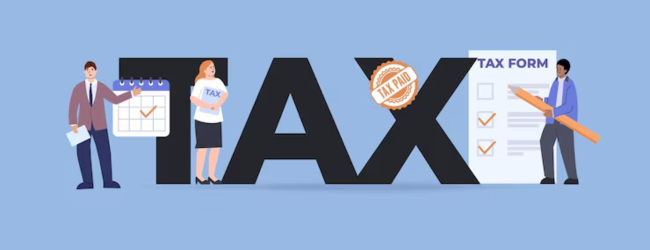Table of contents
- What is Business Income Tax?
- Overview of Business Income Tax Slab FY 2024-25
- Taxation for Sole Proprietorships
- Partnership Firms & LLPs: Flat Rate Taxation
- Company Taxation (Private Limited, OPC, etc.)
- What is Minimum Alternate Tax (MAT)?
- Advance Tax Applicability
- Important Points to Remember
- Conclusion
- Frequently Asked Questions (FAQs)
Understanding business income tax in India is crucial for every entrepreneur, whether you’re running a startup, a sole proprietorship, an LLP, or a private limited company. In this article, we break down the business income tax slab for FY 2024-25 in the simplest terms. We’ll look at different tax structures, applicable rates, surcharges, and everything in between—so you can save more and stay compliant.
What is Business Income Tax?

Business income tax is the tax paid by individuals or entities earning income from trade, commerce, or profession. In India, different types of business structures are taxed differently under the Income Tax Act, 1961.
Overview of Business Income Tax Slab FY 2024-25
| Business Type | Tax Rate | Surcharge | Notes |
|---|---|---|---|
| Sole Proprietorship | As per Individual Slab | Yes, if income > ₹50 lakh | Can opt for old or new tax regime |
| Partnership Firm | Flat 30% | 12% if income > ₹1 crore | No slab system |
| LLP (Limited Liability Partnership) | Flat 30% | 12% if income > ₹1 crore | Taxed like firms, not like companies |
| Domestic Company (Turnover ≤ ₹400 Cr) | 25% | 7%/12%/10% (based on income) | MAT is applicable if under the exemptions |
| Domestic Company (Turnover > ₹400 Cr) | 30% | 7%/12% | Higher rate for larger companies |
| New Domestic Manufacturing Company (Section 115BAB) | 15% | 10% (flat) | Must be set up after Oct 2019 & start by Mar 2024 |
💡 Pro Tip: If you want to start a Business but have too many doubts, connect with a Business expert from Boss Wallah for guidance – Check Out
Taxation for Sole Proprietorships
Since a sole proprietorship is not legally separate from its owner, the business income is taxed under the individual income tax slabs.
Individual Tax Slabs (New Regime – FY 2024-25)
| Income Range (₹) | Tax Rate |
|---|---|
| 0 – 3,00,000 | 0% |
| 3,00,001 – 6,00,000 | 5% |
| 6,00,001 – 9,00,000 | 10% |
| 9,00,001 – 12,00,000 | 15% |
| 12,00,001 – 15,00,000 | 20% |
| Above 15,00,000 | 30% |
📌 Note: The Old Tax Regime is still available with deductions like 80C, HRA, etc.
ALSO READ | Income from Business and Profession: Decoding Section 28 of the Income Tax Act
Partnership Firms & LLPs: Flat Rate Taxation
Both partnership firms and LLPs (Limited Liability Partnerships) are taxed at a flat rate.
🔹 Tax Structure
- Income Tax Rate: 30%
- Surcharge: 12% (if net income exceeds ₹1 crore)
- Health & Education Cess: 4% on tax + surcharge
📌 No benefit of income slabs or deductions like individuals.
Company Taxation (Private Limited, OPC, etc.)
🔹 For Domestic Companies
- Companies with turnover ≤ ₹400 crore:
- Tax Rate: 25%
- Companies with turnover > ₹400 crore:
- Tax Rate: 30%
- Surcharge:
- 7% if income > ₹1 crore
- 12% if income > ₹10 crore
🔹 Companies under Special Tax Provisions
a) Section 115BAA (New Tax Regime for Companies)
- Tax Rate: 22%
- Conditions: No exemptions or deductions allowed
- Effective Tax: 25.17% (after surcharge & cess)
b) Section 115BAB (New Manufacturing Companies)
- Tax Rate: 15%
- Effective Tax: 17.16%
- Conditions:
- Company set up & registered after October 1, 2019
- Commenced production before March 31, 2024
What is Minimum Alternate Tax (MAT)?
- Applies to: Companies not opting for 115BAA or 115BAB
- Rate: 15% of book profits
- Exemption: Companies opting for the new regime (115BAA/BAB) are exempt from MAT
Advance Tax Applicability
If your total tax liability exceeds ₹10,000 in a year, you must pay advance tax in quarterly instalments:
| Due Date | % of Tax Payable |
|---|---|
| 15th June | 15% |
| 15th September | 45% |
| 15th December | 75% |
| 15th March | 100% |
ALSO READ | 10 High-Demand Small Scale Manufacturing Business Ideas for 2025
Important Points to Remember

- All business types must file ITR-5 (firms, LLPs) or ITR-6 (companies) or ITR-3 (sole proprietors).
- MSMEs and startups can claim various tax holidays under the Startup India Scheme.
- Late filing may lead to penalties under Section 234F.
Need Expert Guidance?
Starting a business can be challenging, but you don’t have to do it alone! At Boss Wallah, our 2,000+ business experts are ready to provide valuable insights and guidance. Whether you need help with marketing, finance, sourcing, or any other area of your business, our business experts are here to help you succeed
Confused about Which Business to Start?
Want to start your own business but unsure which one to choose? Explore Boss Wallah, where you’ll find 500+ courses by successful business owners, featuring practical, step-by-step guides on starting and growing various businesses.
Find your perfect business idea today
Conclusion
Knowing your correct business income tax slab is not just about compliance—it helps you plan, save, and grow. Whether you’re a freelancer, run an MSME, or operate a large private limited company, tax planning is essential for healthy financial management. FY 2024-25 introduces clarity with new tax regimes and favourable rates for startups and manufacturers. Choose the best tax structure wisely!
Frequently Asked Questions (FAQs)
1. What is the tax rate for a sole proprietorship in India for FY 2024-25?
It follows the individual income tax slab (new or old regime).
2. What is the business income tax slab for partnership firms?
A flat 30% tax rate applies, plus a 12% surcharge if income exceeds ₹1 crore.
3. Can LLPs claim deductions under Chapter VI-A?
Yes, LLPs can claim certain deductions, but not under the new tax regime.
4. What are MATs, and when are they applicable?
Minimum Alternate Tax (MAT) applies at 15% on book profits for companies not under sections 115BAA or 115BAB.
5. What is the tax rate for new manufacturing companies?
It’s 15% under Section 115BAB (effective tax around 17.16%).
6. Do companies need to pay advance tax?
Yes, if the total tax liability is more than ₹10,000 per year.
7. Are startups eligible for any tax exemption?
Yes, under Section 80-IAC, eligible startups can claim a 3-year tax holiday.
8. What is the surcharge for a company with ₹12 crore profit?
A 12% surcharge is applicable.
9. What ITR form should a business use?
- Sole proprietors: ITR-3
- LLPs/Firms: ITR-5
- Companies: ITR-6
10. Can I choose between the new and old tax regime?
Only individuals and HUFs (including sole proprietors) can choose; firms and companies have fixed regimes.


